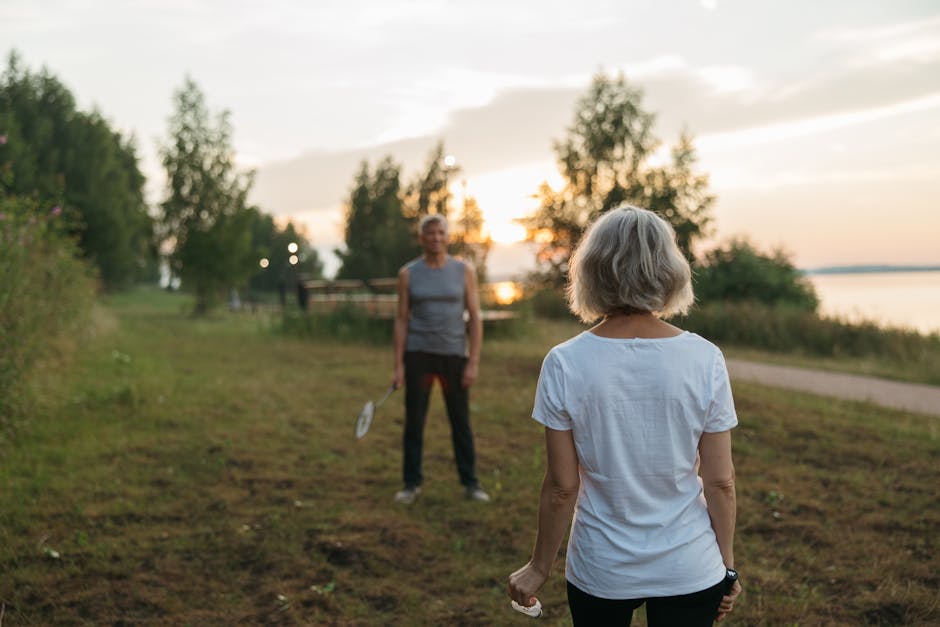Physical health improvements are perhaps the most readily apparent benefits. Regular physical activity, even at a moderate intensity, helps combat age-related muscle loss (sarcopenia) and bone density reduction (osteoporosis). Activities like swimming, walking, or gentle yoga enhance strength, flexibility, and balance, reducing the risk of falls a major concern for older adults. Improved cardiovascular health is another significant advantage; activities such as cycling or dancing strengthen the heart and improve circulation, lowering the risk of heart disease, stroke, and other cardiovascular complications. Furthermore, participating in recreational activities often leads to better weight management, contributing to a reduced risk of type 2 diabetes and other metabolic disorders. Even simple activities like gardening can contribute significantly to physical well-being, offering moderate exercise alongside the therapeutic benefits of working with nature.
Beyond the physical, recreational activities provide a powerful boost to cognitive function. Many activities challenge the brain, requiring concentration, memory, and problem-solving skills. Games like chess or bridge demand strategic thinking and memory recall, helping to maintain cognitive sharpness and potentially delaying the onset or slowing the progression of age-related cognitive decline, including dementia and Alzheimer’s disease. Learning new skills, such as painting, pottery, or playing a musical instrument, also stimulates brain plasticity, promoting the formation of new neural connections and enhancing cognitive resilience. The social interaction inherent in many recreational activities further contributes to cognitive health by stimulating social engagement and reducing feelings of isolation.
The impact of recreational activities on mental well-being is equally profound. Physical activity releases endorphins, natural mood boosters that alleviate stress, anxiety, and depression. Engaging in enjoyable activities fosters a sense of purpose and accomplishment, combating feelings of loneliness and isolation, particularly prevalent among older adults. The social interaction inherent in group activities, such as bowling leagues or book clubs, provides opportunities for connection, support, and shared experiences, strengthening social bonds and reducing feelings of isolation. These social connections are vital for maintaining mental health and overall well-being in later life. The sense of community fostered by recreational groups can also offer a valuable support network, providing a sense of belonging and reducing feelings of loneliness.
Moreover, recreational activities can contribute significantly to improved sleep quality. Regular physical activity helps regulate the body’s natural sleep-wake cycle, promoting more restful and restorative sleep. Improved physical and mental health, resulting from recreational engagement, also contributes to better sleep, creating a positive feedback loop that enhances overall well-being. The reduction in stress and anxiety associated with recreational activities further contributes to improved sleep patterns, allowing seniors to experience the restorative benefits of quality sleep, essential for both physical and cognitive health.
The choice of recreational activity should be tailored to individual needs and abilities. It is crucial to consider physical limitations, existing health conditions, and personal preferences. Low-impact activities are often recommended for individuals with joint pain or other mobility issues, while those with good health might enjoy more vigorous activities. The key is to find activities that are enjoyable and sustainable, ensuring consistent participation and maximizing the benefits. Many communities offer a wide range of accessible recreational programs specifically designed for seniors, catering to diverse interests and abilities. These programs often provide a supportive environment where individuals can engage in physical activity and social interaction in a safe and comfortable setting.
In conclusion, the benefits of recreational activities for seniors are multifaceted and substantial. From improving physical health and cognitive function to boosting mental well-being and fostering social connections, participation in recreational pursuits plays a vital role in promoting healthy aging and enhancing the quality of life for older adults. By encouraging engagement in suitable activities and providing access to supportive programs, we can empower seniors to lead active, fulfilling, and independent lives well into their later years. Promoting active aging through recreational activities is not merely about extending life; it is about enriching it. The emphasis should be on finding activities that are enjoyable, accessible, and tailored to individual needs, thereby maximizing the profound and lasting benefits these activities offer.
